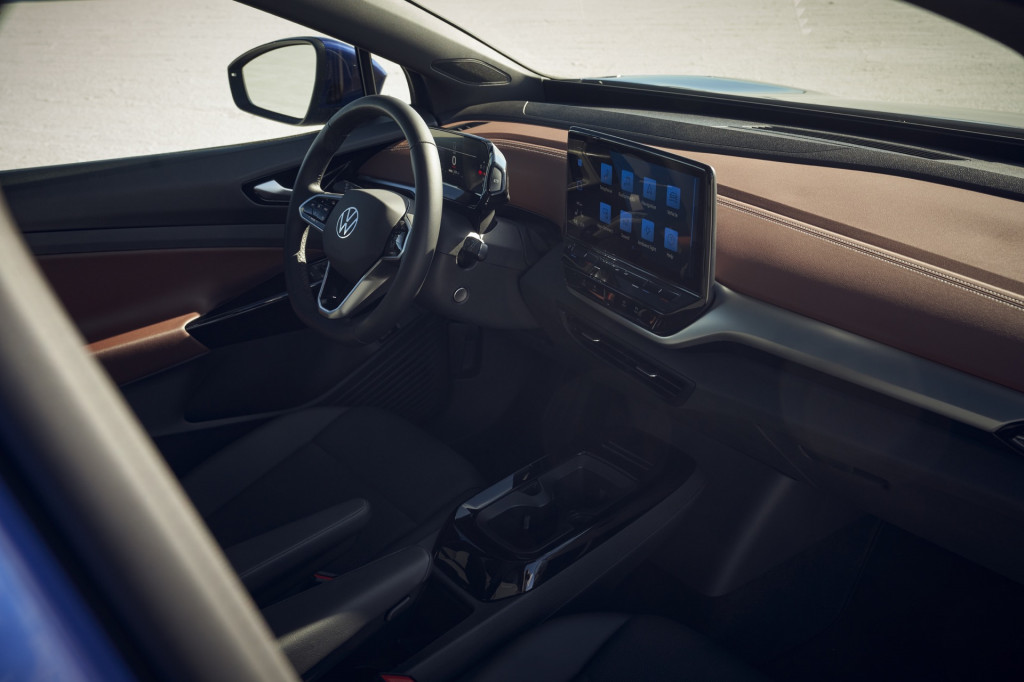With winter underway and its ID.4 electric crossover scheduled to hit dealerships in a few weeks, Volkswagen touted its cold-weather capabilities of its new mass-market EV. And in the U.S. it's managing to retain the necessary range without a heat pump.
VW gave the ID.4 a handful of features to quickly and efficiently heat the cabin—and give it a head start while it's still plugged in. When it comes to heating the cabin in cold weather, electric cars are at a disadvantage. Unlike internal-combustion cars, they don't have heat-generating engines. Instead, electricity from the battery pack must be used to provide heat, leaving less energy for propulsion.
To mitigate this, VW made heated seats and a heated steering wheel standard equipment. They heat body parts directly, providing a more efficient way to warm up, according to VW. The ID.4 also has an electric-resistance heater (similar to the glowing elements in your toaster), which gets up to temperature more quickly than the heaters used for internal-combustion cars, the automaker said.
However, there has been no mention of a heat pump for the United States market. VW offers one on the mechanically-similar ID.3 hatchback in Europe, and the ID.4 will include it in Canada.

2021 Volkswagen ID.4
While all-wheel drive won't be available until after it launches, the ID.4 is marketed as a crossover, which would seem to make it of more interest to buyers in snowier regions of the country.
The Polar Vortex and an unseasonably frigid winter two years ago left some new EV adopters out in the cold, forcing them to dramatically lower their range expectations.
Suppliers have boasted that their heat pumps can reverse some cold-weather range loss, with Mahle claiming its system can recover 20% of range that would otherwise be lost. Automakers were initially hesitant to add heat pumps because they don't actually boost EPA range ratings, and they make their most significant impact on longer trips, but many have come around, including Tesla, for the Model Y.
Heat pumps aren't a perfect solution though: in a 2018 Norwegian EV Association cold-weather test, the Nissan Leaf used dramatically more energy than expected, and testers suggested an inefficient heat pump may have been to blame.












